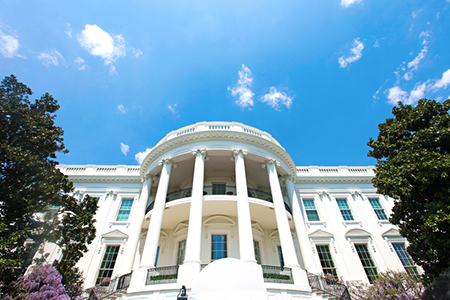President Trump’s proposed tax plan has been met largely with disapproval from the housing industry, with several constituents concerned about a change that would double the standard deduction—and, in effect, invalidate the tax benefits of owning a home.
“For roughly 75 million homeowners across the country, their home is more than just a number,” said National Association of REALTORS® (NAR) President Bill Brown in a statement on the plan. “It represents their ambitions, their nest egg, and the place where memories are made with family and friends. Targeted tax incentives are in place to help people get there. The mortgage interest deduction and the state and local tax deduction make homeownership more affordable, while 1031 like-kind exchanges help investors keep inventory on the market and money flowing to local communities. Those tax incentives are at risk in the plan released .”
The outcome of the changes, should they be enacted, could be devastating to homeownership, according to Brown.
“Current homeowners could very well see their home’s value plummet and their equity evaporate if tax reform nullifies or eliminates the tax incentives they depend on, while prospective homeowners will see that dream pushed further out of reach,” Brown said.
National Association of Home Builders (NAHB) Chairman Granger MacDonald shared similar sentiments.
“Doubling the standard deduction could severely marginalize the mortgage interest deduction, which would reduce housing demand and lead to lower home values,” said MacDonald in a statement.
The changes could have an inverse impact, as well, on lower-income households, according to Diane Yentel, president and CEO of the National Low Income Housing Coalition (NLIHC).
“By raising the standard deduction, Mr. Trump’s tax plan would lead to fewer households claiming the mortgage interest deduction (MID)—a $70 billion tax write-off that primarily benefits higher-income households,” said Yentel in a statement. “Without additional reforms to provide a greater tax benefit to low- and moderate-income homeowners and to reinvest the savings into providing affordable rental homes to those with the greatest needs, Mr. Trump’s proposal would amplify MID’s regressive effect; only the wealthiest Americans would benefit.”
Brown, in addition, pointed to the majority share of federal income taxes paid by homeowners, cautioning that they could shoulder even more responsibility if the changes take effect.
“As it stands, homeowners already pay between 80 and 90 percent of the U.S. federal income tax,” said Brown. “Without tax incentives for homeownership, those numbers could rise even further.
“Common sense says that owning a home isn’t the same as renting one, and America’s tax code shouldn’t treat those activities the same either,” Brown said. “While we appreciate the administration’s stated commitment to protecting homeownership, this plan does anything but.”
National Economic Council Director Gary Cohn reiterated the administration’s intent to preserve homeownership in a briefing on the plan.
“Homeownership, charitable giving and retirement savings will be protected,” said Cohn.
Stay tuned to RISMedia.com for more developments.
For the latest real estate news and trends, bookmark RISMedia.com.











